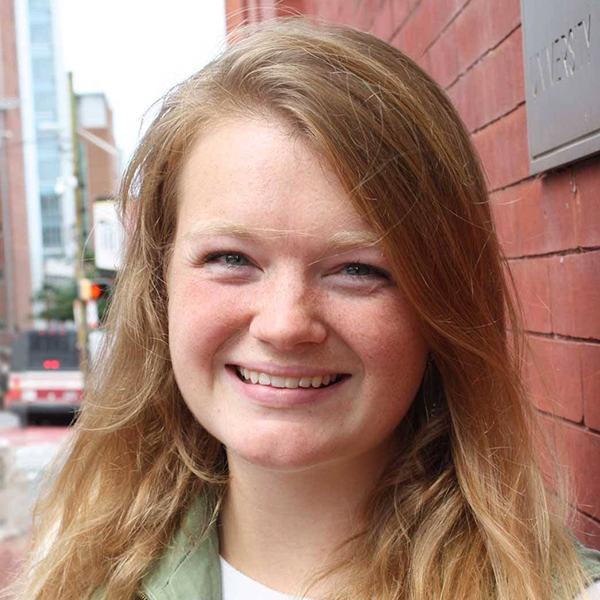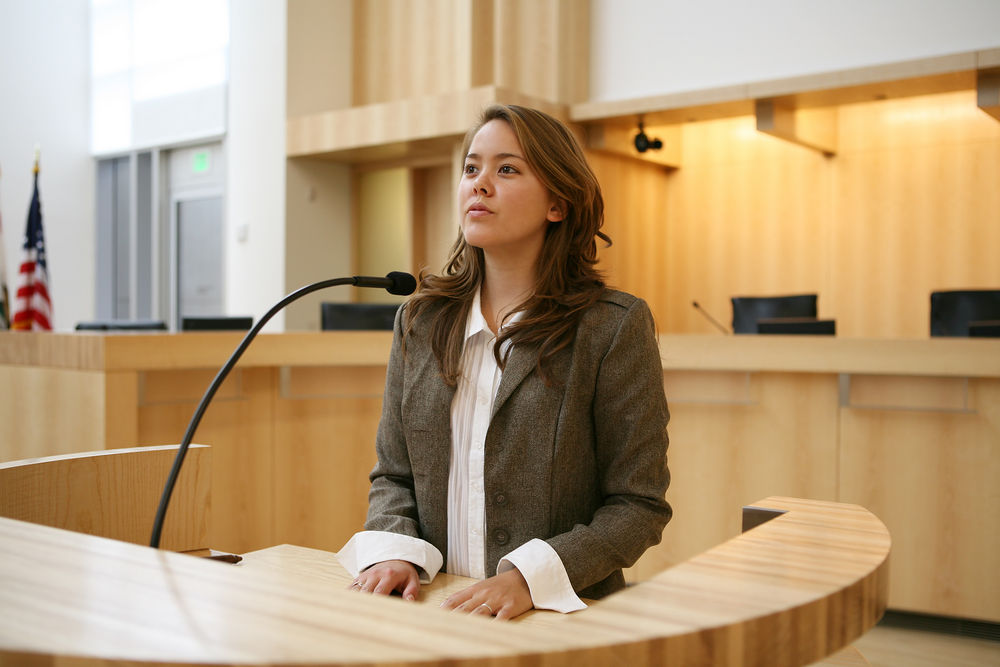I vividly remember the Maryland State Senate hearings on Feb. 1, 2018. I was hardly three weeks into my first legislative session, preparing to give my first-ever testimony against a bill egregious to youth justice reform, while simultaneously teaching myself how one even becomes an “Annapolis advocate.”
But it was a different bill hearing, one that came earlier that day, that I remember best. Introduced by the ACLU of Maryland, Senate Bill 249 aimed to depoliticize the parole process in the state. The affirmative testimony alone lasted for over an hour: Not only did the usual players testify — sponsoring legislators, hired lobbyists, advocates who have spent the better parts of their careers in the illustrious Annapolis capitol buildings — but many, many unfamiliar faces offered their testimony as well.

Sarah Wall
One after another, elderly gentlemen, usually African-American or Hispanic, backs bent with age and often using canes to hobble to the front of the chamber, shared their personal stories of their paroles denied to a wide-eyed crowd.
I remember noticing the change in legislators’ faces when these men were called to the front. The glazed-over gazes snapped to attention when one of these directly impacted individuals earnestly, honestly, simply shared their own experiences and how this bill would change those stories for people who came after. This is what power looks like, I thought to myself. This is how you change the law in Maryland.
The players in youth justice reform have yet to grab hold of this burgeoning progressive mantle: directly impacted individuals sharing their own stories suddenly becomes “untenable” when those individuals are between the ages of 16 and 24. Why do advocates, the champions of progressive reform, caution against the presence of the very people they’re working for at coalition meetings or during legislative hearings?
“It’s too risky. We don’t know what they’re going to say or how they’re going to talk.” “There’s no need. I expect youth’s representatives — the advocates — to speak for them.”
That message — that adults don’t need youth to speak up because there is an abundance of well-seasoned professionals to tell their stories for them — is being heard loud and clear by our young people. “A lot of youth don’t understand that their voices matter,” says Erica R.,17 and the vice-chair of Community Law in Action’s Youth Advisory Council. “But many issues that our government is trying to fix are issues that involve the youth, but they’re not involving the youth in their discussions. We need to get these youth voices, because most of the people who know more about the situations are the youth.”
Winning without youth voices isn’t winning
Our young people have grown up in systems that silence them, whether because of their skin color, their gender or their age. We, as advocates and activists all over the country, cannot continue to believe that we can be change-makers and reformers if we’re feeding the system that silences the very beneficiaries of our reform. If we are going to change laws so that they improve the outcomes and lives of young people, it’s going to take their input, their stories and their leadership.
That’s what we do at CLIA. We work to provide a platform for the youth voice so they are the ones leading the effort for policy reforms. Through our Just Kids Campaign, that looks like training youth who were once charged as adults to be leaders, advocates and community organizers sharing their own stories in writing, on video, in community meetings and yes, with legislators.
It’s not always convenient: it means we don’t always leave work at 5 p.m., since we operate on the schedules of youth coming from work or school. And it’s definitely not easy: Our young people very often carry with them the traumas of poverty — growing up without a parent in the home, witnessing drug dealing or gang violence in their own neighborhoods, dropping out of school to help provide for younger siblings when they are mere kids themselves. Those burdens can make it often difficult, often messy, to teach these youth to be spokespeople taking ownership over a story that has, up to now, caused them no small degree of pain.
But isn’t that what it’s about — what it must be about? In my estimation, if we change youth justice laws without the voice and influence of youth themselves (unlikely, but let’s call it a hypothetical), we’ve only succeeded in kicking the can down the road. We haven’t empowered anyone. We haven’t brought up the next generation of leaders and advocates. We haven’t altered the relations of power or changed the communities they come from. No. We’ve only made it easier for the next administration, or the next one or the next one, to undo what we’ve only half-done in the first place.
We owe it to our work and our young people to not just make space for youth at the table, but to teach them how to build the table. I’m proud to be part of an organization where youth are steering the conversation, where they are deciding what change they want to see in the world and we, the adults, are merely helping to facilitate their vision.
I want to see this model across Maryland and across the United States, because our youth are the experts, and they’re here now. “We [the youth] are not just ‘the future,’ because it’s already here,” explains Tyler B., 17 and a member of CLIA’s Youth Advisory Council. “The youth aren’t just part of the future to come. It’s already becoming.”
Sarah Wall is the government relations manager for Community Law in Action, a nonprofit in Baltimore. She manages the Just Kids Campaign, an advocacy campaign to stop the automatic prosecution of youth as adults in Maryland, which blends legislative advocacy with a communications campaign to change the narrative around youth in Baltimore.
